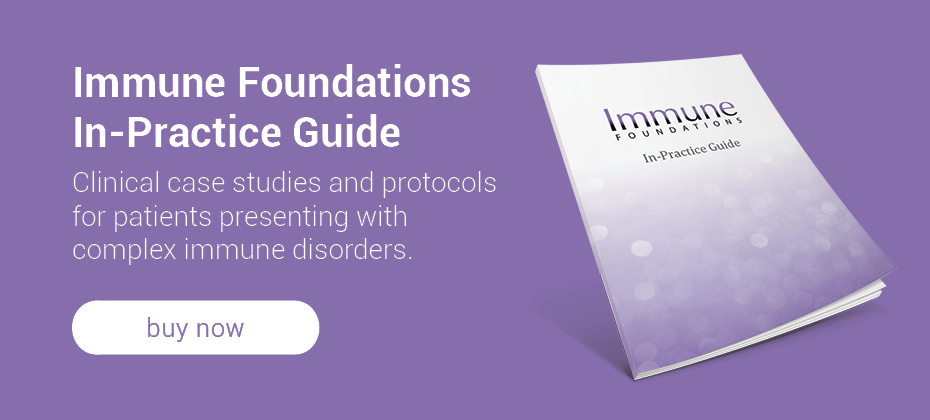Antioxidants and detoxification are more than just marketing buzzwords. With health care professionals talking more and more about the importance of detoxification, almost everyone understands that antioxidants play a crucial role in this process and in optimizing overall health. There is significant clinical data that indicates a good detoxification protocol is a must for individuals with chronic illnesses.1 This patient type in particular needs to reduce their toxic burden as a first step in their healing process.
Clinically, we’ve learned a lot about how antioxidants work in the body, and their ability to soak up reactive oxygen species and rid these toxins from the body. Glutathione is an antioxidant that plays a critical role in detoxification and boosting immune health.1,2 Perhaps you are reading this and thinking, “I have been on detox protocols, but glutathione was not included due to its low absorption when consumed.” Let’s dive into this conundrum more and talk about how this line of thinking is no longer relevant based on current research and evidence.
What is glutathione?
Glutathione is a tripeptide made with three amino acids, glycine, L-glutamic acid, L-cysteine. It is found in every cell in the body and is heavily concentrated in the liver, where it plays a key role in Phase II detoxification.2 Toxins, as we know, can be found in the air from pollution, food from glyphosates and in water where trace elements often reside. Living a modern lifestyle has its downsides when toxic burden in the body increases as a result of poor diet, stress, mold and EMF exposure. As this burden increases, the body’s ability to keep up with the demands of ridding these toxins decreases, resulting in oxidative stress. This is where a little extra help from antioxidants like glutathione can make a huge difference.
The molecular structure of glutathione allows it to chelate toxic elements as they are sequestered, transported and excreted. This is mainly due to the thiol group (sulphur-containing molecule) found in the glutathione molecule.3 Sulphur acts as a sticky glue that can scoop up toxins and free radicals easily and excrete them.3
When should glutathione be supplemented?
Let me start by saying our bodies can make glutathione on their own.3 When the body suffers from oxidative stress, the demand for antioxidants like glutathione also increases, and the supply does not meet this demand. We can clinically assess if this is the case with a simple blood/urine test looking at glutathione levels, pyroglutamate levels and oxidative stress markers such as 8-Hydroxy-2-deoxyguanosine (8-OHdG). In this situation, it is important to consider supplementation. Furthermore, the synthesis process involves the precursor molecule N-acetyl cysteine and the rate-limiting enzyme glutamate cysteine ligase (GCL).4
Our genetic makeup can significantly impact glutathione levels. If there is genetic variability where transcription of important enzymatic proteins is affected, then there is a direct impact on glutathione levels in the body. A major culprit that causes these genetic variations or mutations is single nucleotide polymorphisms or SNPs.4 Some of the most important genes include GSTM1, GSTP1 and SOD2.4 These genes support the synthesis and maintenance of healthy levels of glutathione in the system. When there is evidence of SNPs of these genes, supplementation is warranted.4
Do delivery forms matter?
For any orally consumed supplement, the most frequently asked question is, “Is it well-absorbed?” There has been ongoing research to find a solution that delivers “bioavailable” oral forms of glutathione. The debate as to the best delivery system continues, and there are several forms available in the market including oral, sublingual, transdermal and liposomal—and each is marketed as a superior delivery system.4
Perhaps a better question to ask is, “Is one particular form better than another from a bioavailability standpoint or from delivering clinical outcomes?” Above all else, it is important to focus on clinical outcomes. Even though there are emerging studies argue about which delivery form is better, it is crucial to look at the quality and outcomes indicated in the study. And while there are mixed opinions on providing oral glutathione, current quality research suggests that the oral form of reduced glutathione is cost-effective, easily absorbed and has a significant impact on systemic glutathione levels and immune health. Still, there is a need for quality comparative studies to indicate one form over another.
With the advent of technology, novel research measures are continuously taken to deliver better solutions to pressing health issues. Therefore, I am confident that studies conducted in the future will solidify the use of one form of glutathione over another, eliminating any doubts on delivery or efficacy.
1 Honda, Y; Kessoku, T; Sumida, Y; et.al. Efficacy of glutathione for the treatment of nonalcoholic fatty liver disease: an open label, single arm, multicenter, pilot study. BMC Gastroenterology. 2017, 17:96
2 Richie, J; Nichenametla, S; Neidig, W; Calcagnotto, A, et.al. Randomized controlled trial of oral glutathione supplementation on body stores of glutathione. EurJ Nutr. 2014, 54(2):251-263
3 Pizzorno, J. Glutathione! Integr. Med 2014, 13, 18-12
4 Minich, D; Brown, B. A review of Dietary (Phyto) Nutrients for Glutathione Support. Nutrients 2019, 2073

Mia Iyer, DC is a Board-Certified Chiropractic physician who received her doctorate from National University of Health Sciences. With a passion for research, she focused her clinical rotations on publishing relevant peer reviewed journal article(s). Working in an integrated healthcare clinic, Dr. Iyer has successfully treated her patient population using an integrative approach, utilizing multiple evidence-based modalities addressing the root of the illness. Her continued passion for research and integrative lifestyle medicine opened doors to the Lifestyle Matrix Resource Center where she currently holds the position of Immune Foundations Brand Manager.




